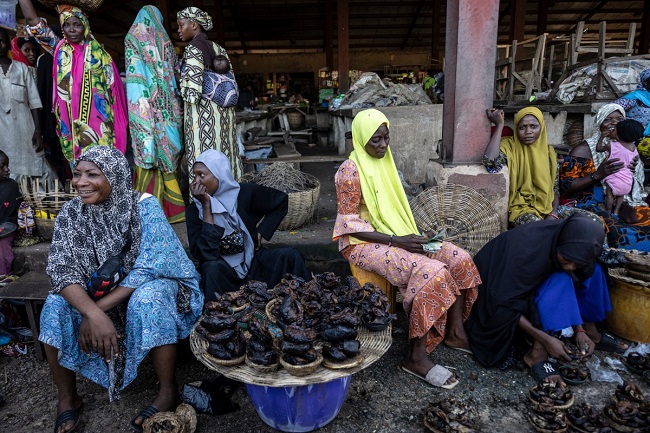According to an economist, Paul Alaje, the National Bureau of Statistics’ (NBS) rebased inflation has not altered the economic realities, including high food prices, that Nigerians deal with.
“Before this announcement, food inflation alone was about 51.8%, but in this new figure, food inflation of the total inflation now accounts for only 40%”, he said on Channels Television’s Politics Today programme on Tuesday.
“Our reality is unchanged, but that does not mean that if you go to the market tomorrow, the price of food will improve,” he said.
” Also, people who want to invest in our country, perhaps when they see a reduced inflation rate, will have confidence, and we need this. “

The Consumer Price Index (CPI), which determines the rate at which prices fluctuate between goods and services, was updated on Tuesday. The Bureau changed the reference year used to determine price levels from 2009 to 2024 by rebasing the CPI.
By implication, the NBS said Nigeria’s headline inflation changed from 34.80% recorded in December 2024 to 24.48% in January 2025.

Alaje said, “It will be wrong for people to say that inflation dropped from 34 to 24%.” That will be a wrong narrative. If it drops, we should see the reflection in prices, but that is not what we have seen. “
The economist argued that changing, rather than dropping, is the right word to use.
The Bureau of Statistics’ recent actions do not indicate a decrease in inflation. The Bureau is saying: ‘ we are no longer going to reference 2009 as the base year, we will now start reference 2024’, “he said.
Alaje, in 2009, Nigeria used 20 hours per week as an employment measure, but now the country uses one hour per week as a gauge for employment.
He cited two crucial government decisions, including the removal of subsidies and the floatation of the forex rates, and stated that “the wisest thing to do is make the necessary adjustment.”
Source: Channels TV





Leave a Reply